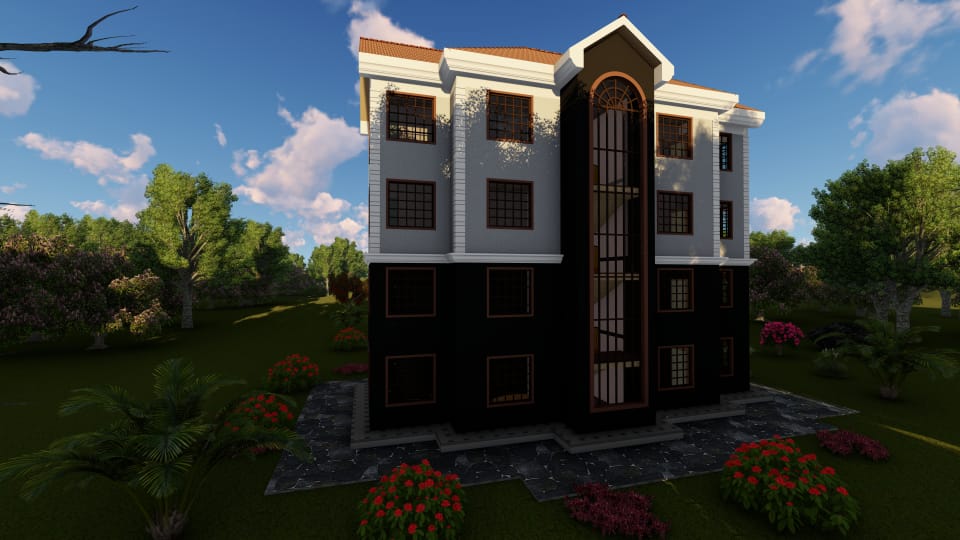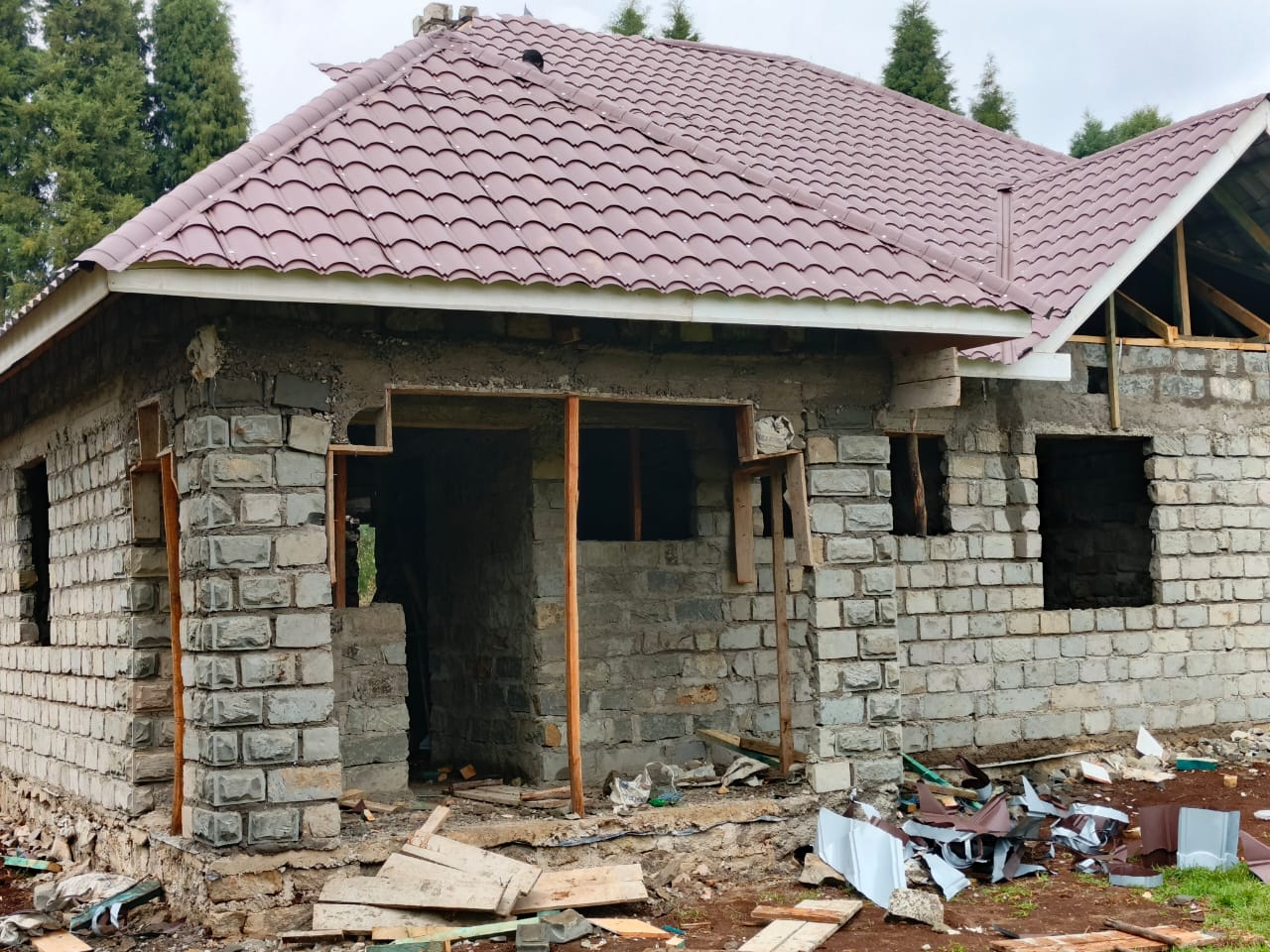Introduction
How to hire a reliable contractor in Kenya is one of the most important steps when planning a building or renovation project. The right contractor can save you time, money, and stress by delivering quality work on schedule. On the other hand, choosing poorly can lead to delays, hidden costs, and legal disputes.
This guide gives you a clear step-by-step process — from project planning to signing a contract and monitoring progress. By the end, you’ll know exactly how to vet contractors, protect your investment, and ensure your project runs smoothly.
Define the Project & Budget Before You Search
Write a Clear Scope of Work
A clear project scope helps avoid confusion between you and the contractor. List the exact deliverables, materials, and exclusions. For example, note the number of rooms, finish types, fixtures, and areas outside the contractor’s responsibility. Using a project scope template in Kenya makes this process easier and reduces disputes.
Prepare a Realistic Budget + Contingency
Set a construction budget that includes labour, materials, permits, and other costs. Always add a 10–15% contingency to cover unexpected expenses like material price changes or small design changes. This protects you from financial strain during the build.
Project Timeline & Milestones
Break your project into clear stages with estimated durations. For instance:
- Foundation (2–3 weeks)
- Roofing (3–4 weeks)
- Finishes & fittings (4–6 weeks)
This makes it easier to monitor progress and hold the contractor accountable.

Where to Find Reliable Contractors in Kenya
Referrals & Word-of-Mouth
Start by asking friends, family, or colleagues who have recently completed construction projects. A referral is often the safest way to find a reliable building contractor in Kenya, since you can see the results firsthand and get honest feedback on quality, pricing, and timelines.
Online Directories & Marketplaces
Check platforms like FindAFundi, LinkedIn, or even Facebook community groups. Many contractors advertise services online, and you can view ratings, reviews, and portfolios before reaching out. Searching for a contractor near me in Nairobi or your specific town can narrow results to local options.
Local Associations & NCA Lists
The National Construction Authority (NCA) regularly updates a database of registered contractors. Verifying a contractor’s registration through the NCA website ensures they meet basic legal and professional standards. You can also check local construction associations for vetted professionals.
Vetting Credentials & Verifying Experience
Licences and Registrations
Always confirm that your contractor is legally recognised. Check for NCA registration, business registration, tax PIN, and valid insurance. Hiring an NCA-registered contractor in Kenya protects you from legal risks and ensures the builder meets professional standards.
Portfolios and References
Review their past work before committing. Ask for photos of completed projects, arrange site visits, and speak directly with previous clients. This helps you confirm quality, timelines, and reliability. It’s one of the best ways to verify contractor credentials in Kenya.
Subcontractors & Suppliers
A reliable contractor should have strong partnerships with subcontractors and suppliers. Stable relationships mean they can source quality materials at fair prices and maintain a steady workforce, reducing project delays.

Interview Checklist: Questions to Ask
Technical Questions
Ask about the materials they recommend and why. A professional contractor should explain their approach to quality control, site supervision, and adherence to building codes. This shows how well they can handle technical challenges.
Commercial Questions
Find out how they structure payments, whether it’s milestone-based or monthly. Ask about their claims history to check if they’ve had frequent disputes with clients. Clear answers here reduce the risk of financial misunderstandings.
Operational Questions
Ask what resources, staff, and equipment they will assign to your project. Understanding their workforce capacity helps you know if they can handle your timeline and project scale.
Reading and Comparing Quotes
Anatomy of a Good Quotation
A strong quotation should clearly break down itemised costs for labour, materials, and overheads. It should also include realistic timelines for each stage of the project. A detailed breakdown gives you transparency and makes it easier to track spending.
Comparing Quotes Fairly
When reviewing multiple quotations, ensure they are based on the same scope of work and materials. Normalising the quotes allows for a fair comparison — otherwise, one contractor may look cheaper only because they used lower-quality assumptions.
Red Flags
Be cautious of contractors who provide lump-sum quotations with no breakdown. Unusually low pricing is also a warning sign, as it may lead to hidden costs or poor-quality work. Always cross-check figures against market rates.
Keyword used naturally: contractor quotation checklist Kenya.

Writing a Rock-Solid Contract
Essential Elements
Every construction contract should clearly state the scope of work, project timeline, payment structure, retention terms, warranties, and termination conditions. A detailed agreement prevents disputes and protects both client and contractor.
Sample Clause Snippets
- Variation Orders: Must be in writing with agreed costs and time adjustments.
- Liquidated Damages: A Daily penalty fee if the contractor overruns the timeline.
- Warranties: Minimum 12 months for structural works, with longer warranties for major installations when possible.
These clauses create accountability and encourage timely, quality delivery.
Attachments to Include
A contract should always reference and attach critical documents, such as:
- Architectural drawings.
- Bills of quantities (BoQ).
- Approved specifications.
- Insurance certificates.
These attachments ensure all parties agree on the same standards before work begins.
Related post: House Construction Costs in Kenya 2025 – Full Breakdown
Payments, Retention & Financial Protections
Typical Models
Most contractors in Kenya work with a 10–30% deposit, followed by milestone payments tied to project stages like foundation, roofing, and finishing. Additionally, many agreements include a 5–10% retention fee withheld until the project is fully complete. This approach ensures accountability and keeps cash flow balanced.
Retention Mechanics
Retention works as a safeguard for the client. Typically, half of the retention is released upon project completion, while the remainder is paid after the defects liability period (commonly 3–6 months). This ensures the contractor returns to fix any issues at no extra cost.
Extra Protections
For larger projects, clients may require additional safeguards such as performance bonds or bank guarantees. These tools provide financial backup in case the contractor defaults, giving peace of mind on high-value contracts.
Related post: Roofing Materials in Kenya – Prices & Best Options

Project Management, Communication & Quality Control
Who Manages What
Clear roles prevent confusion on-site. An engineer or quantity surveyor (QS) usually provides oversight, the contractor assigns a site manager for daily supervision, and the client (or their representative) monitors overall progress. This balance ensures proper construction site supervision in Kenya.
Reporting Schedule
Insist on a reporting structure before work begins. Weekly progress reports, milestone sign-offs, and site meetings keep everyone accountable. This also provides a record of decisions and changes made during the project.
Snagging and Defects
Before handover, create a detailed punch list of all unfinished or faulty items. The contractor must resolve these issues before final payment or retention release. This process guarantees quality delivery and reduces post-handover disputes.
Related post: Types of Foundations in Kenya – Costs & Pros/Cons
Avoiding Scams, Resolving Disputes & Legal Remedies
Common Scams
Be alert to red flags such as contractors working without a written contract, using fake licences, or demanding full payment upfront. These are classic tricks rogue builders use to exploit clients. Always verify documents and follow a step-by-step contractor quotation checklist Kenya before paying.
Dispute Resolution
If problems arise, follow a structured escalation: start with direct discussions, then mediation, and if needed, move to arbitration. Courts are usually the last resort due to cost and time. Using a clear construction dispute resolution process keeps matters professional and reduces losses.
When to Act
You may need to withhold payments or even terminate the contract if the contractor repeatedly breaches agreed terms. In severe cases, you can report a rogue contractor in Kenya to the NCA or relevant authorities to prevent others from falling victim.
Handover, Warranty & Aftercare
Handover Checklist
At the end of the project, insist on a proper construction handover checklist in Kenya. This should include all approved drawings, operation manuals, warranties, and permits. Having everything documented ensures you’re covered for future reference or maintenance needs.
Related post: Land Transfer Costs in Kenya Explained
Defects Liability Period
Most contracts include a defects liability period in Kenya of 6–12 months. During this time, the contractor is responsible for fixing any faults at no extra charge. Make sure this clause is clearly written into the contract before signing.
Downloadable Resources
Provide or request helpful documents such as:
- A contractor hiring checklist.
- Variation order request form.
- Sample payment schedule.
These resources make it easier to manage the project and maintain accountability.
Related post: What Type of Apartment Can You Build with Kshs.70M in Ongata Rongai?

Conclusion
By defining your project clearly, setting a realistic budget, and vetting contractor credentials, you lay the foundation for a successful build. Adding a solid written contract and well-structured payment plan gives you financial protection and peace of mind.
Remember, learning how to hire a reliable contractor in Kenya is not just about finding the lowest price. It’s about trust, transparency, and safeguarding your project through proper agreements and oversight.
Use the steps and checklists in this guide to make informed decisions, avoid scams, and ensure your project is completed on time and to the right standard. With the right contractor, you can build confidently and avoid costly mistakes.
FAQs (For FAQ Schema)
- What licences should I ask to see before hiring a contractor in Kenya?
Always check for an NCA registration certificate, a valid business registration, a tax PIN, and active insurance cover.
- How much deposit is reasonable to pay a contractor in Kenya?
A deposit of 10–30% is common, tied to project milestones. Avoid paying the full amount upfront.
- What is retention, and when should I release it?
Retention is 5–10% of the contract sum withheld for quality assurance. Release half at completion and the balance after the defects liability period.
- Can I use a verbal agreement?
Verbal agreements are highly risky. Always insist on a signed written contract with clear terms.
- How do I verify a contractor’s past projects?
Ask for a portfolio, call past clients, and if possible, visit active or completed sites to inspect workmanship.
- What if the contractor asks for more money mid-project?
Only approve changes through a written variation order with agreed costs and timelines. Never accept informal requests.
- Who handles building permits in Kenya?
County permits are mandatory. Decide in the contract whether the contractor, architect, or client will handle applications.
- Should I ask for a performance bond or guarantee?
Yes, especially for large projects. For smaller works, retention and strong contract clauses may be enough protection.
Related post: Affordable Apartment Designs in Kenya Under 50 Million: Best Plans for High ROI
Related Post: Cost of Land in Kiambu vs Machakos Counties (2025 Guide & Comparison)




21 thoughts on “How to Hire a Reliable Contractor in Kenya”